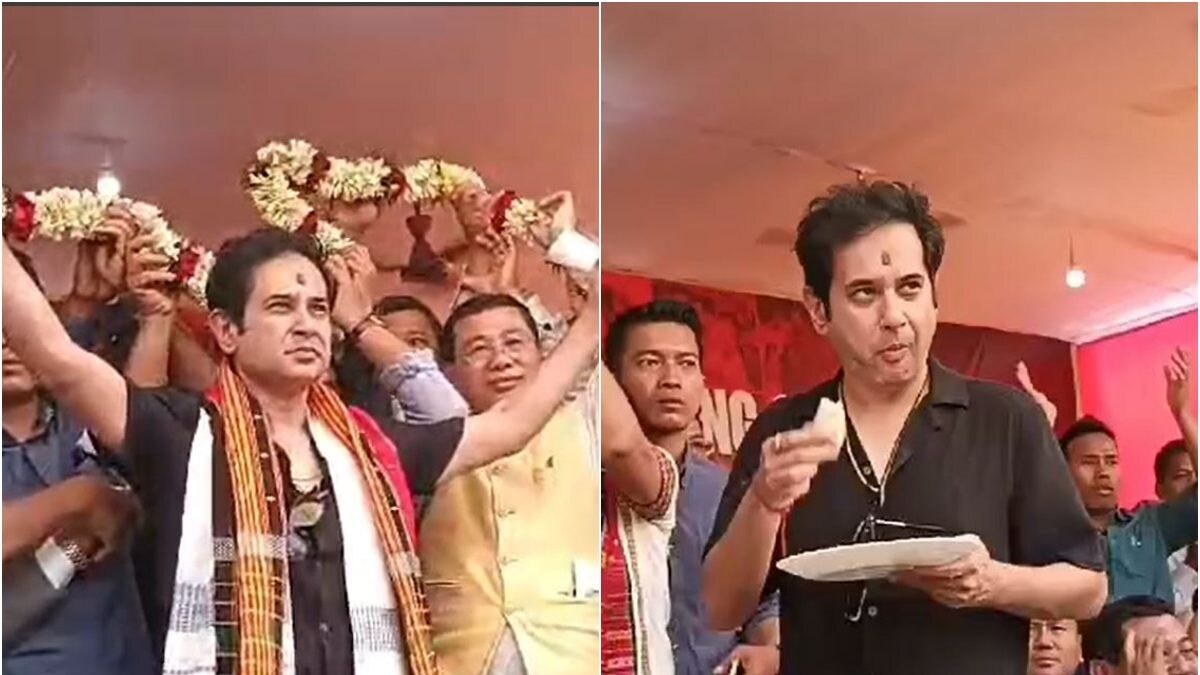TIPRA Motha chief Pradyot Debbarma breaks his fast at Baramura Hills on Sunday. (Image: News18/Ritul Bhagabati)
Debbarma was fasting-unto-death to demand a permanent resolution for the issues confronting indigenous people
TIPRA Motha founder Pradyot Kishore Manikya Debbarma called off his fast-unto-death at Baramura Hills (Hatai Kotor) in West Tripura on Sunday, which was the fifth day of fasting.
After breaking his fast, Debbarma addressed the gathering and said, “…Now we have to keep our discipline and within a time-frame, we have to achieve what is desired. Here I appeal to everyone, those who are not interested in politics, but are good in education, linguistic, law, and those who understand our culture, our history, what happened to us in 1974, how LRI clause enacted on us and how we lost the right to our land.”
“Today we need these people to come to our committee, not the leaders who can only give speeches but cannot follow the actual facts,” the TIPRA Motha leader added.
Debbarma was fasting-unto-death to demand a permanent resolution for the issues confronting indigenous people.
The decision to call off the fast came a day after Debbarma received assurance from the Centre’s interlocutors. He arrived in the national capital on Saturday and gave his consent to the pact with the Centre.
Soon after, a tripartite agreement — in the presence of Union Home Minister Amit Shah — was signed between the Centre, Tripura government and the TIPRA Motha party. Shah said that this a “lasting solution” for the challenges faced by the indigenous communities in the state.
Debbarma said that the tripartite agreement with the central government, signed over a slew of issues relating to tribal welfare including political, economical, cultural, social, land rights and language issues faced by the state’s tribal population, was satisfactory.
Signing of the accord means that 60 per cent of the fight for tribal rights is won, he said, adding that the TIPRA Motha will press for achieving the rest 40 per cent as well.
However, dedicated leaders are still need for the secured future of the indigenous people of Tripura, Debbarma said while pressing upon his earlier point.
“Today we need to speak in a script which was ours, today we need to decide on the future of our children,” the TIPRA Motha founder added.
He emphasised that if the children are well educated, protected and well qualified, then a few politicians cannot do any harm to the society in the future.







